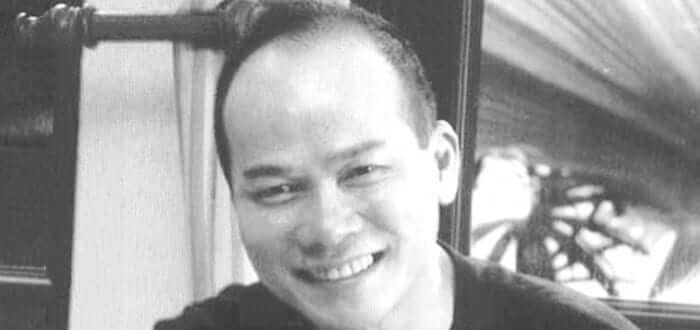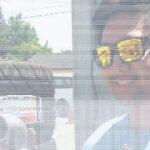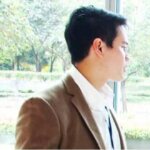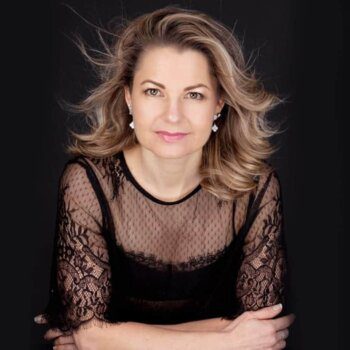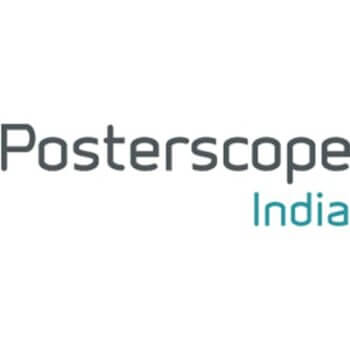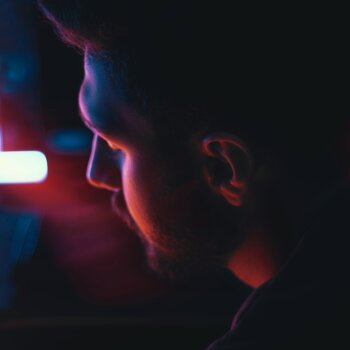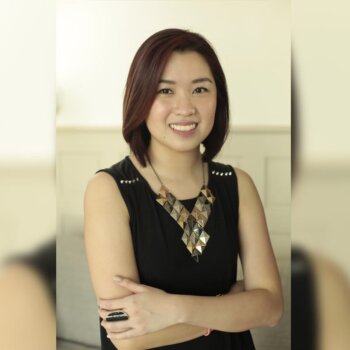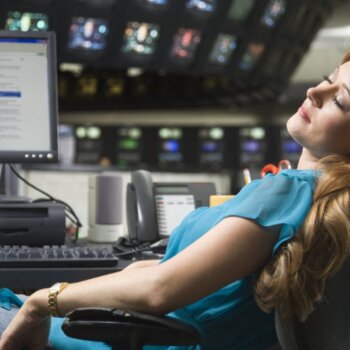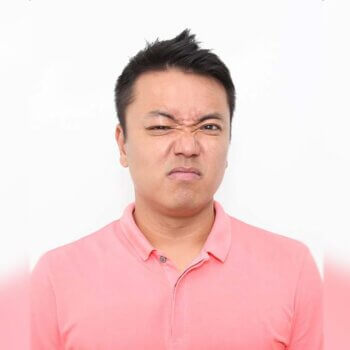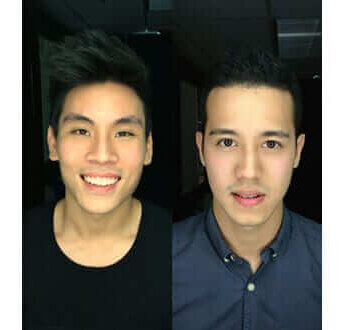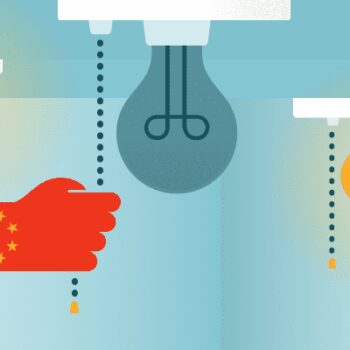Edmund Ser is a Malaysian fashion designer and businessman based in Kuala Lumpur, Malaysia. He is best known for his designer brand, EDMUND SER of Malaysia that specialises in jackets and career apparel. The numerous roles that he has played in the Malaysian fashion industry are limitless and to name a few, he has judged the Miss Malaysia Pageant, Malaysian Young Designers’ Competition and Project Runway Malaysia. Ser established the Edmund Ser, SER and Spade fashion labels.
Ser is a third-generation Malaysian Chinese, born into a middle-class Chinese family in Kuala Lumpur. Ser spent his primary and secondary school years at Methodist Boys’ School Kuala Lumpur. A fashion show held in 1968 to mark the silver jubilee of the Methodist Boys’ School Kuala Lumpur was one of Ser’s insiprations to take up fashion design for a living.
Ser apprenticed at a local men’s tailor from 1973-1975. He travelled to England in 1975, where he enrolled for a course on clothing and craft at the Medway College of Design in Rochester, Kent. During that course, he sat for the City and Guilds of London Institute external exam and obtained a craft certificate in men’s tailoring. Ser left halfway through the course at Medway, and enrolled for a four-year diploma in art at the Canterbury College of Art in Kent.
He studied tailoring from a master cutter who fashioned clothes for Queen Elizabeth II. During this time, he passed the City and Guilds of London Institute advanced craft certificate in men’s retail bespoke tailoring. Upon graduation in 1979, he obtained a tailoring job at Thomas Pratt & Sons Limited in London for six months.
Ser eventually returned home to Kuala Lumpur in 1980. In 1980, Ser borrowed RM5,000 from his parents and teamed with a former schoolmate, who invested another RM5,000, to set up a men’s tailoring shop named West Point Fashion House. Due to high rent increases, Ser and his partner were forced to move their shop in 1983. Ser split with his partner in 1984 and bought over the shop to make men’s and ladies’ apparel, with financial support from his family and his friend Orson Wong.
Ser established his self-titled label Edmund Ser in 1986 for men’s wear, and later on for women’s wear in 1987. Ser was a representative of Malaysia in the Asean Designers’ Scene, where he represented Malaysia for the Asean Designers’ show in Singapore, the Philippines, Thailand and fellow Asean states in 1987, 1988, 1989, 1990, 1992 and 1995. Ser is titled amongst Asean’s best five. Ser was one of the founding members of the Malaysian Official Designers’ Association (MODA), which was founded in 1987. He was treasurer in 1993.
Ser being labelled as the ‘jacket man’, had his jackets become his signature line in the 1990s. In 1992, Ser opened his first Edmund Ser boutique in Concorde Hotel Kuala Lumpur where he specialised in made-to-measure women’s career wear.Ser had also launched his SER fashion label featuring a higher end for women’s career wear. Through retail and franchising, Ser’s apparel have been sold in the Philippines, Thailand, Japan, Indonesia and Singapore.
The Asian Entrepreneur is joined by Edmund Ser today as he personally charts his entrepeneurial story within the Malaysian high fashion industry.
Edmund, in your own words how would you describe your own brand EDMUND SER?
EDMUND SER is a brand that sells designer career wear. It features simple minimalist details coupled with quality fabrics. The designs are made to be sophisticated and expensive looking with subtle fashion details. The aim is to enhance the image of the wearer at work and to help them be more presentable.
And how did you start out EDMUND SER?
The designer brand ‘EDMUND SER’ did not start out immediately. It was through time did the self-named brand come about. In 1980, I first started off in Kuala Lumpur with a tailoring shop by the name of ‘West Point Fashion House’. As the tailoring shop grew more popular, I decided to create the designer brand.
What exactly made you decide to root your brand in Malaysia as compared to London, where you’ve built a lot experience?
Well I felt that I should bring back what I have learnt and share it with the fellow Malaysians to contribute to Malaysia. I felt that not only the West can have nice clothes, but our own country should have them as well.
So walk us through the initial stages of starting up your brand.
Well, starting up the brand itself ‘EDMUND SER’ involved a lot of testing grounds. From a tailoring shop, I moved on to supply ‘cut-make-trim’ (CMT) clothes for department stores such as Oval, Parkson and Isetan. After that, I decided that it would be nice to have a little counter at the department stores to carry clothes under my brand. And later on, I opened my first boutique ‘EDMUND SER’ at Concorde Hotel Kuala Lumpur in 1992.
Would you say that you had to approach the design and vision aspect of your brand because you were trying to set it up in Malaysia?
Well, in terms of sizing, I had to make our cuts smaller to tailor to Asian sizing. Through my experience in making clothes for the department stores, I was able to identify what the consumers wanted and to also filter out my design focus, career wear. I decided to go into career wear especially for ladies because Asian women at that time were readily becoming career women and they needed someone to cater to them.
How was the scene like in Malaysia when you started up?
There were mostly only tailoring shops and very few designer brands. People usually went to tailoring shops to get their pants or suits done. There were not many ready-to wear retail shops compared to now.
Were there any particular challenges you faced trying to do what you did?
Well, I would say I had financial problems. But from supplying to the department stores, I was able to use those earnings to expand. The department stores helped me in many ways such as to bring my exposure to the mass consumers. I also had difficulty sourcing staffs such as machinists, pattern makers and to actually form a team of workers. I started off with one machinist and slowly through the years, I have been able to have a very sustainable team of workers. I would say that time with patience was what helped made things better.
Any disappointing moments back then during the startup period?
Well, I was already relatively known at that time because I was able to deliver what few would be able to. There was a big influence of Giorgio Armani at that time, and I was able to make clothes alike for the consumers. So, I did not really have any disappointing moments during my startup experience.
So what was your approach to marketing your brand initially?
I was very fortunate to be able to sponsor clothes for the TV3 newscasters. In the 80s and 90s, the newscasters were like celebrities. This media exposure as well as fashion shows, local Malaysian events, ASEAN designers and MODA designers events, helped market my brand a lot. Well things have changed, since my brand has already been around for more than 20 years. With 20 years of sustaining retail outlets, and word of mouth, the brand has been able to stay and helped garnered in our corporate clienteles.
How would you describe the high fashion industry in Malaysia, do you think there have been much changes since when you entered it?
To be honest, I feel that the local fashion industry is not conducive for local fashion designers as there a lot of international brands; and shopping centers have its own priority.
Obviously, the industry is very competitive, has that made you change how you approach your business?
I have now moved on to produce designer uniforms for corporate companies. Hence, I am not facing the retail competition. I always question myself “Whatever that works today, what if it does not work in the future?” and “What if people do not like or do not want EDMUND SER anymore?” This is why I have gradually evolved my business throughout the years. From tailoring, to supplying for department stores, to having a department store counter, to having my own boutiques, and now to manufacturing uniforms for corporate companies. During my boutique and retailing days, I started in a silent manner, to take up uniform jobs and have expanded ever since. It is a shift from retailing to corporate uniforms. I think it is important to always anticipate and prepare ahead. Even if one is fairly successful at this moment, things may change, and one must be prepared if they change comes.
Are there anything that you are particularly excited about in the industry today?
No one truly understands the basic and fundamental designs anymore. People are changing too many things. And I feel that this is where I can come in to bring back the basics to the consumers.
Could you share with us some interesting insights you’ve gathered so far, working on EDMUND SER?
The most important thing that I have learnt all this time is ‘perseverance’. Without it, I would not have been able to keep going and to hold out this far. I think by being able to evolve within you and your limits are important. What I mean is ‘think out of the box, but within your box’. As humans, you have to change and improve, but at the same time not do things that are over your boundaries, a drastic switch. Do not get carried away such as switching from career wear to avant garde. Consumers would not be able to relate to you.
How does a work day in your life look like?
I get up at 6.00 am to wake my children up for school. I make sure my praying room is clean. I have my breakfast at about 8.30-9.00am. And arrive at work at about 9.00 to 9.30am. At my factory, I would check up and complete works that have to be done on my part. Then I would go see the pattern makers, cutters and machinists to see if they are facing any problems with their work. I will then look into the company’s accounts. After work, I would visit my retail counters to check up on the staffs. And I knock off at 6.00pm.
Are you working on anything else at the moment?
For the past few years and now, I have been working on manufacturing uniforms for corporate companies. It is really exciting because I now design and conceptualize a look that for example a hotel or bank is looking for. I have to take into account the interior, understand the company’s profile and vision, as well as various other factors when I am designing the uniforms. It is quite difficult as uniforms have to be simple but yet they have to have that distinct detail that sets them apart from other companies. Uniform designs are worn by all types of people which range in different physiques and skin colour, and yet the uniform has to look great regardless of all these factors; I think that is what makes uniform designing a challenge which I enjoy.
Where do you see EDMUND SER in 10 years?
If the environment permits, it will evolve into a very well known brand in the corporate sector. There will be a stand-alone flagship store selling only signature EDMUND SER line.
Any parting words of wisdom for our readers out there?
I think one cannot just have 1 string in his guitar. You need to have ample cards in your hands – being prepared for any foreseeable shortcomings is important. One must not be complacent even after a fair success. I think you must always ask the question to yourself “What if it fails?” Do not worry about popularity or fame as it will not last forever.
Even an icon such as Michael Jackson has his high and low periods. What makes us think we deserve lasting fame? Patience is another important virtue next to perseverance. Your career is the longest marathon you will run. Sometimes you have to know when to slow down and when to pick up speed. Pacing yourself is important; you need to know when is the right time to speed and also to not take shortcuts.
I feel that if you are well prepared, the only competition is yourself. It is important to deliver the best to your customers, do not cheat them, and be true to your customers. Some singers are popular at one moment and you may not hear from them for a while, but eventually they would become popular again. As long as you stay true to what you believe in, things would fall into place, even if not now, but eventually. Everything is a cycle. Human beings are very fickle; they do not know what they truly want. No matter how good the food is, people would get fed up; but they would come back again one day.
Connect with Edmund Ser and EDMUND SER today:
Website: http://www.edmundser.com/
